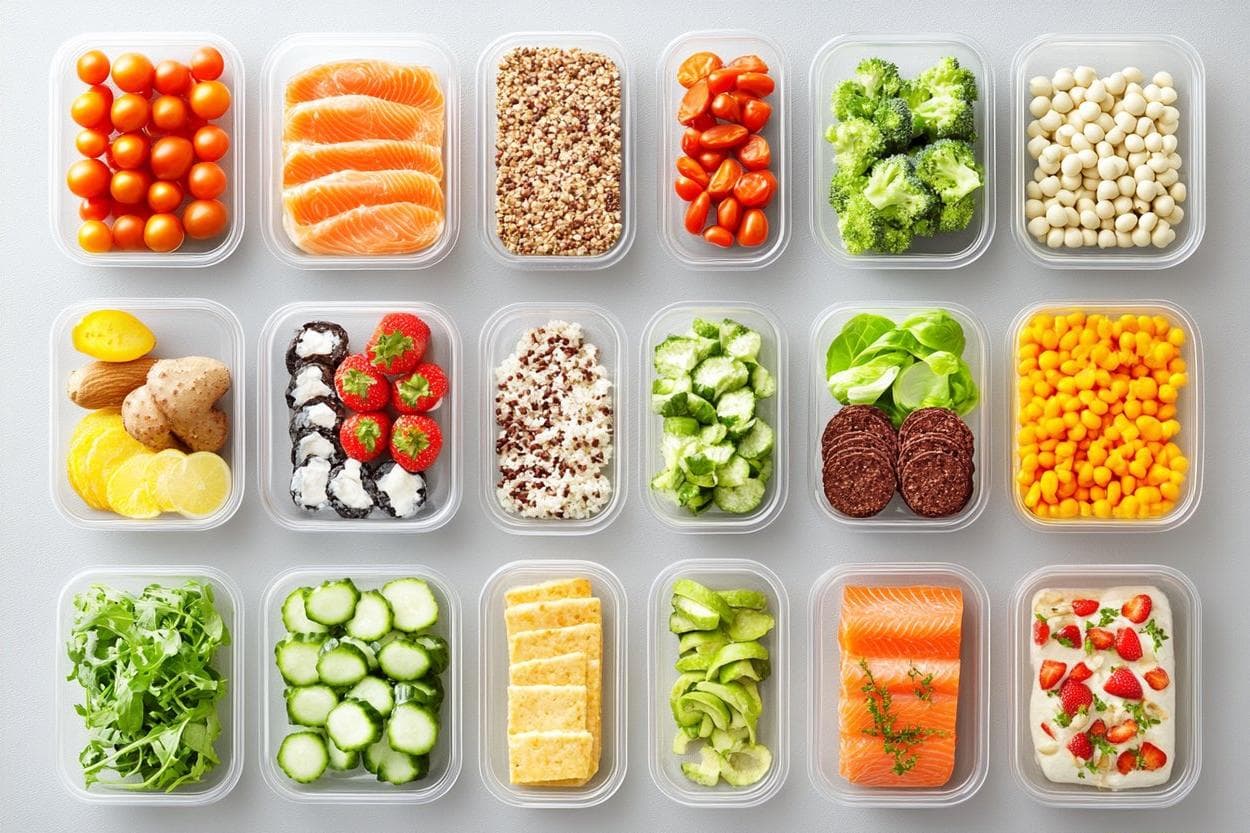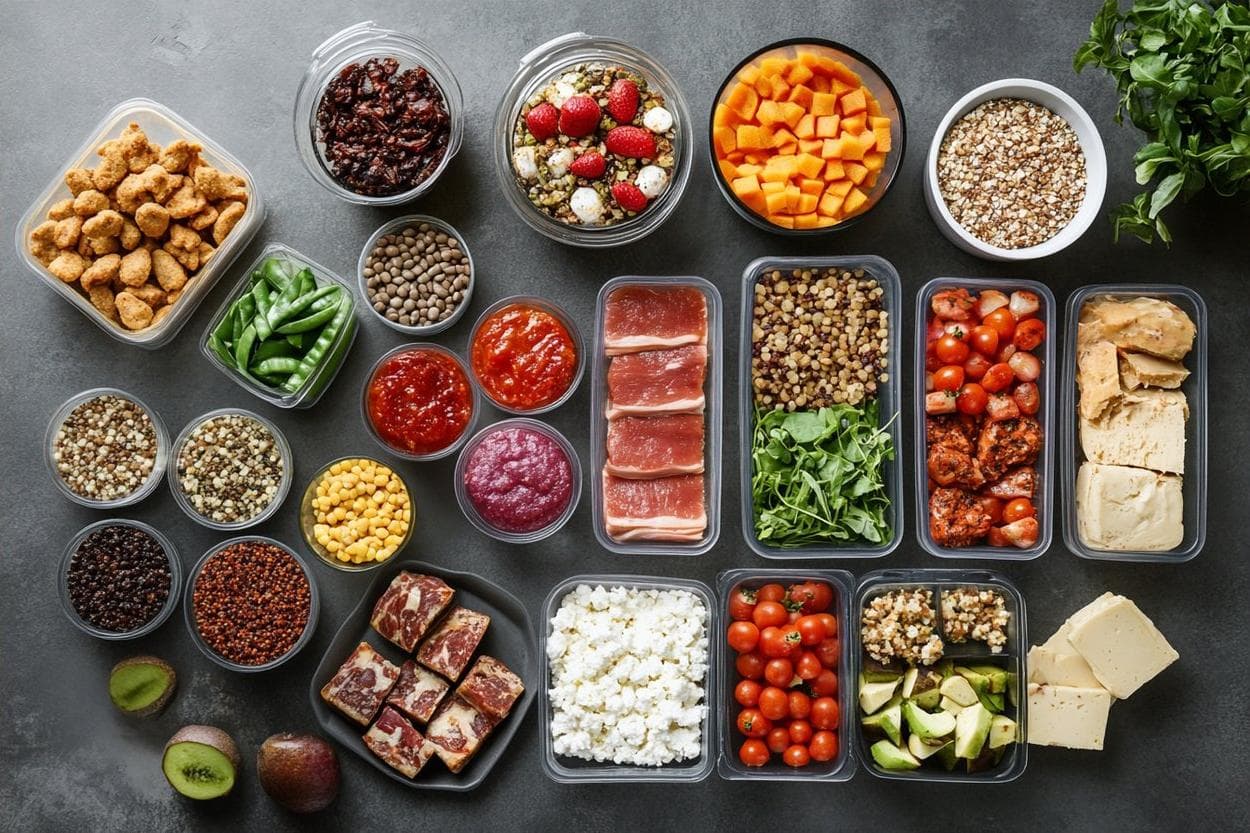Exploring Effective Dietary Strategies for Diabetes Management
Managing diabetes involves more than just monitoring blood sugar levels; it requires a comprehensive approach to diet and lifestyle. Early signs of diabetes can be subtle, such as increased thirst and frequent urination. By focusing on the right foods, you can manage these symptoms effectively. Incorporating high-fiber foods and low-carb meals into your diet can aid in maintaining stable blood sugar levels.

Moreover, opting for gluten-free and dairy-free options might benefit those with additional dietary preferences or restrictions. To prevent and treat diabetes, it's crucial to consume foods that help regulate insulin sensitivity, such as leafy greens and healthy fats, while avoiding high-sugar and processed foods. At-home remedies and meal prep ideas can further support diabetes management, offering delicious, diabetic-friendly recipes and snacks that align with your dietary needs.
Understanding the Role of Diet in Diabetes Management
Diet plays a pivotal role in managing diabetes. The right dietary strategies can help maintain blood sugar levels, enhance insulin sensitivity, and support overall health. A well-balanced diet for a diabetic should focus on whole foods, emphasizing nutrients that stabilize blood sugar levels and reduce inflammation.
High-Fiber Foods for Diabetics
Fiber is an essential component of a diabetic-friendly diet. Foods rich in fiber, such as fruits, vegetables, whole grains, and legumes, can slow digestion and the absorption of sugar, preventing spikes in blood sugar levels. Increasing fiber intake can also promote a feeling of fullness, which is beneficial for weight management—a critical aspect of diabetes care.
Some high-fiber foods to consider include:
- Leafy greens: Spinach, kale, and Swiss chard are low in carbohydrates and high in fiber, making them excellent choices for blood sugar control.
- Whole grains: Opt for quinoa, barley, and oatmeal instead of refined grains.
- Legumes: Beans, lentils, and chickpeas are packed with fiber and protein, offering a satisfying and nutritious option.
Low-Carb Meals and Their Impact
Carbohydrate management is another crucial aspect of diabetes care. Low-carb meals help prevent blood sugar spikes and improve glycemic control. Emphasis should be placed on healthy carbs, such as those found in vegetables, nuts, and seeds.
To create balanced low-carb meals, consider the following tips:
- Prioritize protein: Incorporate lean proteins like chicken, turkey, or tofu to keep you full and maintain muscle mass.
- Include healthy fats: Avocados, nuts, and olive oil can provide essential fatty acids and promote heart health.
- Choose non-starchy vegetables: Broccoli, zucchini, and bell peppers are excellent options that provide nutrients without excessive carbs.
Gluten-Free and Dairy-Free Options
For individuals with diabetes who also have gluten or dairy sensitivities, finding suitable dietary options can be challenging. Fortunately, many alternatives provide similar nutritional benefits without the allergens.
- Gluten-free grains: Quinoa, brown rice, and buckwheat are nutritious options that can be incorporated into your diet.
- Dairy-free substitutes: Almond milk, coconut yogurt, and cashew cheese can replace traditional dairy products without compromising taste or nutrition.
Practical Diabetic Meal Prep Ideas
Meal prepping is a valuable tool for managing diabetes, as it allows for better control over ingredients and portion sizes. By preparing meals ahead of time, you can ensure that your diet aligns with your health goals and reduces the temptation to choose unhealthy options.
Diabetic-Friendly Recipes and Snacks
Creating diabetic-friendly recipes doesn't mean sacrificing taste. There are numerous delicious options that cater to the dietary needs of individuals managing diabetes. Here are a few ideas:
- Breakfast: Overnight oats made with almond milk, chia seeds, and fresh berries for a high-fiber, low-sugar start to your day.
- Lunch: A quinoa salad with cherry tomatoes, cucumbers, and grilled chicken, dressed with olive oil and lemon juice.
- Dinner: Baked salmon with a side of steamed broccoli and cauliflower rice, providing a low-carb, high-protein meal.
For snacks, consider:
- Nuts and seeds: Almonds, walnuts, and pumpkin seeds offer healthy fats and protein.
- Vegetable sticks: Pair carrots or celery with hummus or guacamole for a satisfying, low-carb snack.
Indulging in Diabetic-Friendly Desserts
Having diabetes doesn't mean you have to forgo desserts. With a bit of creativity, you can enjoy sweet treats without compromising your health:
- Fruit-based desserts: Baked apples with cinnamon or a berry parfait with Greek yogurt can satisfy your sweet tooth.
- Sugar-free options: Use natural sweeteners like stevia or monk fruit in your baking to reduce sugar intake.

Conclusion
Managing diabetes through diet requires a thoughtful and strategic approach. By focusing on high-fiber foods, low-carb meals, and addressing any gluten or dairy sensitivities, you can effectively manage blood sugar levels and improve overall health. Embracing meal prep and exploring diabetic-friendly recipes ensures that your dietary choices support your diabetes management goals. Ultimately, understanding the impact of different foods on your body empowers you to make informed decisions, leading to a healthier lifestyle and better diabetes control.
Disclaimer: This article is for informational purposes only and is not a substitute for professional medical advice. Consult with a healthcare provider for personalized dietary recommendations. Prices are accurate as of the publish date and may vary over time.